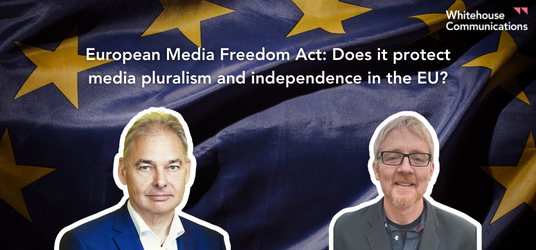Virtual worlds like the metaverse have become a disruptive yet much-debated area of digital innovation. While some herald these immersive experiences as the internet’s “next frontier”, others remain cautious about the potential impact of virtual universes on privacy, safety, and democracy.
As it is often the case with nascent but potentially seminal technological innovations, policymakers in Brussels are determined to assume a leading role in the development of the regulatory regime that will govern interactions in novel virtual worlds by fostering innovation while ensuring that they are beneficial to the European economy and society as a whole. These objectives are expected to be at the core of the European Parliament’s forthcoming report on “Virtual worlds: opportunities, risks and policy implications for the Single Market”, and the recently announced Commission initiative on “Virtual worlds (metaverses) – a vision for openness, safety and respect”, which is currently under public consultation.
The high-level political attention on this issue, together with rapid technological advancements and increasing consumer interest, should signal to those who dismiss these discussions as just another fad, that debates around the virtual worlds should be taken seriously. We take a look at the European efforts to shape the regulatory future of virtual worlds, zooming in on the positions of the European Institutions on a topic that is set to gain even more importance in the (digital) future.
The European Commission: Sketching out the “European way” for virtual worlds
While many headlines focus on the European Commission’s infamous €387K metaverse gala held in November 2022 to promote the EU’s foreign aid work (but which only attracted a handful of visitors), it would be wrong to assume that the Commission is not serious about spearheading the technical standardisation and realisation of virtual worlds.
Already in September 2022, European Commissioner for the Internal Market Thierry Breton proclaimed that the Commission: “intend(s) to shape from the outset the development of truly safe and thriving metaverses”, thereby setting out the starting signal and direction for the development of an EU regulatory approach to the new technology. Breton set out that the “European way” for virtual worlds would rest on three pillars: people, technologies and infrastructure. Firstly, the metaverse should be publicly available and accessible to all, and a space in which people should feel safe and empowered. Secondly, the EU seeks to drive the technologies behind the metaverse by spearheading research and development in the virtual world. Thirdly, the roll-out of the metaverse should incentivise investment in the necessary infrastructure, such as data centres and new payment technologies. This is to ensure that European companies can tap into the huge economic growth potential of the Metaverse, which is predicted to reach a whopping market worth of EUR 918,23 billion by 2030.
Following on from those words, the Commission has just made a big leap towards the realisation of its metaverse strategy, launching a public consultation on “Virtual worlds (metaverses) – a vision for openness, safety and respect”. While the corresponding statement clarifies that, for now, EU-initiatives on EU virtual worlds will be non-legislative in nature, it cements the Commission’s determination to sit at the helm of the standardisation of virtual worlds. In this respect, the reduction of the powers of “gatekeepers” and the elimination of potential market barriers for European smaller and medium-sized companies and star-up have been singled out as key priorities for the Commission.
While the details of any Commission-driven initiative on the metaverse are yet to be defined and refined, it is clear that any policy will reflect the EU’s overarching objective of ensuring that new virtual worlds reflect EU values and fundamental rights while fostering growth and innovation among European businesses.
The European Parliament: Safeguarding citizens’ rights and interests in virtual worlds
While the Commission is still refining its European vision for the metaverse, the position of the European Parliament has already crystalised as cautious and hesitant. As the guardians of citizens’ interests, many Members of European Parliament have expressed their concerns over the potential risks of virtual worlds, citing risks over the processing of personal data, impacts on social interactions and mental health, cyberbullying and other new forms of virtual offences.
The conclusions drawn from ongoing political discussions will culminate in a European Parliament own-initiative (INI) report on “Virtual worlds: opportunities, risks and policy implications for the Single Market”, which is currently being drafted and earmarked for publication in summer 2023. Although non-binding in nature, the report will lay out the Parliament’s stance on the Metaverse debate vis-à-vis the European Commission, which will likely be characterised by demands for a more ambitious and far-reaching regulatory approach from the Commission’s side.
The Council of the EU: Testing the metaverse-waters
Meanwhile, the Council, which will be responsible for negotiating and adopting any metaverse initiatives in collaboration with the European Parliament, is still testing the metaverse-waters. To date, the Council’s contribution to the debates on virtual worlds has been limited to the publication of an analysis and research paper on “Metaverse – Virtual World, Real Challenges”. However, the document conveyed an important message to the 27 Member States represented by the institution, concluding that: “The EU and its Member States should take this development seriously if they are to avoid being caught by surprise in a few years, when there will be far fewer possibilities to promote and defend a European approach to this new world”.
While the majority of EU Member States are still working on national approaches to virtual worlds, Spain has already announced that it will provide 3.8 million Euro to small- and medium-sized enterprises engaged in the research and development of metaverse technologies, thereby joining the global ranks of other countries with metaverse strategies, such as the United States, Brazil and Saudi Arabia.
A (virtual) outlook into the future
The European institutions’ political attention on the metaverse demonstrates Brussels’ determination to set the global standard and assure leadership in the regulation of virtual worlds that may one day be an indispensable aspect of people’s everyday lives.
While virtual worlds have the potential to power economic growth, incentivise social and cultural exchange, improve the provision of services or facilitate collaboration in professional settings, it is key that the foundations upon which the technology will rest are grounded in internationally recognised rules and values. For the European Institutions, this means that the metaverse will have to be an accessible and safe virtual space that safeguards the interest of European consumers and businesses.
Augmented and virtual technologies are developing very quickly, but rules for the Metaverse are not yet fully developed. Political opinions on the metaverse are highly polarised, and concerns over privacy and safety are overshadowed by the opportunities the metaverse can bring to the economy and society. For stakeholders involved in the development of the internet’s “next frontier”, these early days of the policy-making process are a seminal point in time to inform the European narrative on the Metaverse.
As demonstrated by the recently launched stakeholder consultation, which is open until 3rd May 2023, policymakers are open to hearing from stakeholders who can help them craft a regulatory environment that will harness the potential of virtual worlds as inclusive, sustainable, and democratic spaces for fruitful human exchange, economic growth and technological innovation.
At Whitehouse Communications, our team of policy experts delve into regulatory areas such as space, the metaverse, artificial intelligence, radio spectrum, and connectivity to support our clients in navigating these complex and rapidly-evolving fields. If you would like to discuss how we can help your organisation achieve its goals, please contact us here.
Meta-What?
Although the term “metaverse” is on everyone’s lips, there is no universally agreed definition of what it actually constitutes. Contrarily to public perception, the metaverse is not one centralised digital platform, but the overarching term for 3D virtual worlds in which users can interact with each other and their virtual surroundings. Blurring the line between physical and digital life, people can socialise, learn, work, invest and play in the metaverse as avatars, virtual representations of their physical identities.
Few know that the term metaverse” originates in Neal Stephenson’s 1992 sci-fi novel Snow Crash, which predicted a shift to a virtual world. Almost thirty years later, the term was popularised by tech-giant Facebook, which in October 2021, unveiled its vision for its own metaverse. To demonstrate that Facebook is serious about its development of the “next chapter for the internet”, it famously rebranded its corporate identity to Meta.
While the metaverse is synonymous with Zuckerberg’s Meta, other tech titans, such as Apple, Microsoft, Qualcomm or Google, are partaking in the race for the new digital frontier, sitting at the helm of technological innovations that are necessary to access virtual worlds, such as virtual and augmented reality headsets.


